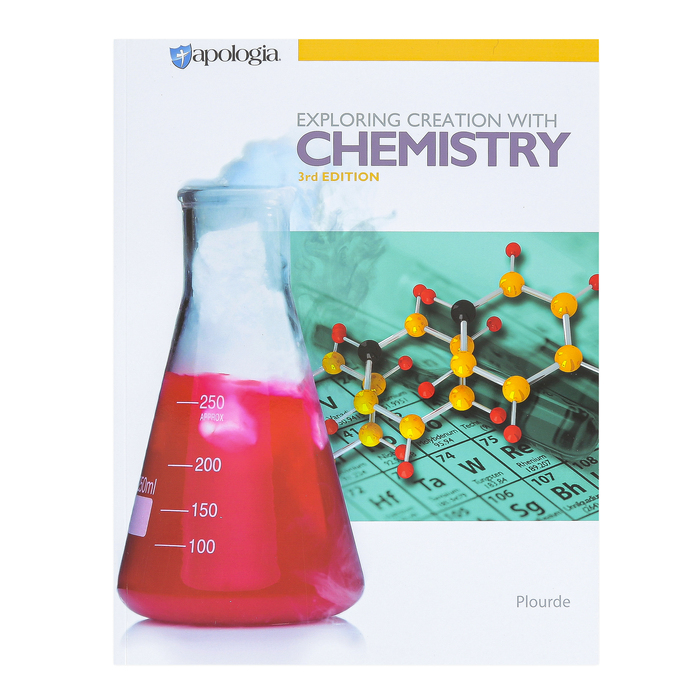As “Apologia Exploring Creation with Chemistry” takes center stage, this opening passage beckons readers into a world crafted with meticulous precision, ensuring a reading experience that is both absorbing and distinctly original. This captivating exploration delves into the fascinating interplay between chemistry and creation, revealing the intricate tapestry of design and purpose that underpins the natural world.
The subsequent paragraphs provide a comprehensive overview of the topic, examining the role of apologetics in exploring creation through chemistry, showcasing the compelling evidence from chemistry that supports the existence of a Creator, and highlighting the challenges of explaining the origin of life through purely naturalistic processes.
Furthermore, the discussion delves into the concept of fine-tuning in chemistry and its implications for the existence of life, presenting evidence for the precise values of chemical constants that are necessary for life to exist.
Apologetics and Creation Chemistry

Apologetics is the branch of theology that seeks to defend the Christian faith against objections and skepticism. Creation chemistry is a field of science that examines the chemical evidence for the existence of a Creator. Together, apologetics and creation chemistry provide a compelling case for the existence of God.
There are several ways in which chemistry provides evidence for the existence of a Creator. One of the most powerful pieces of evidence is the complexity and design found in living organisms. The human body, for example, is an incredibly complex system that is made up of trillions of cells, each of which is performing a specific function.
The odds of such a system arising by chance are astronomically small.
Chemical Design and the Complexity of Life
The complexity of life is not limited to the human body. Even the simplest living organisms are incredibly complex. The bacterial cell, for example, is a marvel of engineering. It contains all of the machinery necessary for life, including a DNA molecule that stores genetic information, ribosomes that translate the DNA into proteins, and a cell membrane that protects the cell from its surroundings.
The complexity of life is a strong argument against the theory of evolution. Evolution posits that life arose from non-living matter through a series of random mutations and natural selection. However, the odds of a simple cell arising by chance are so small that it is essentially impossible.
The Fine-tuning of Chemical Constants
Another piece of evidence for the existence of a Creator is the fine-tuning of chemical constants. The values of these constants are essential for life. For example, the value of the strong nuclear force is just right to allow for the formation of atoms.
If the strong nuclear force were slightly stronger, atoms would not be able to form. If it were slightly weaker, atoms would not be stable.
The fine-tuning of chemical constants is a strong argument for the existence of a Creator. It is difficult to believe that such precise values could have arisen by chance.
Chemical Evolution and the Limits of Naturalism
The theory of chemical evolution posits that life arose from non-living matter through a series of chemical reactions. However, there is no evidence to support this theory. In fact, there are several reasons to believe that chemical evolution is impossible.
One of the biggest challenges to chemical evolution is the problem of information. The DNA molecule contains a vast amount of information. This information is essential for life. However, there is no known natural process that can create information.
Implications for Science and Faith, Apologia exploring creation with chemistry
The evidence from creation chemistry has profound implications for the relationship between science and faith. Creation chemistry shows that the natural world is not a closed system that can be explained solely by naturalistic processes. Rather, the natural world is a testament to the existence of a Creator.
Creation chemistry can provide a framework for understanding the natural world from a Christian perspective. It shows that the natural world is not a random accident, but rather a creation that is designed for a purpose.
FAQ Overview: Apologia Exploring Creation With Chemistry
What is the main argument of “Apologia Exploring Creation with Chemistry”?
The main argument is that the evidence from chemistry supports the existence of a Creator and that the complexity and design found in living organisms cannot be explained solely through naturalistic processes.
How does “Apologia Exploring Creation with Chemistry” relate to science and faith?
It provides a framework for understanding the natural world from a Christian perspective, showing how science and faith can complement each other.
What are some of the challenges of explaining the origin of life through purely naturalistic processes?
Challenges include the complexity of life, the need for a self-replicating system, and the lack of a known mechanism for the origin of genetic information.